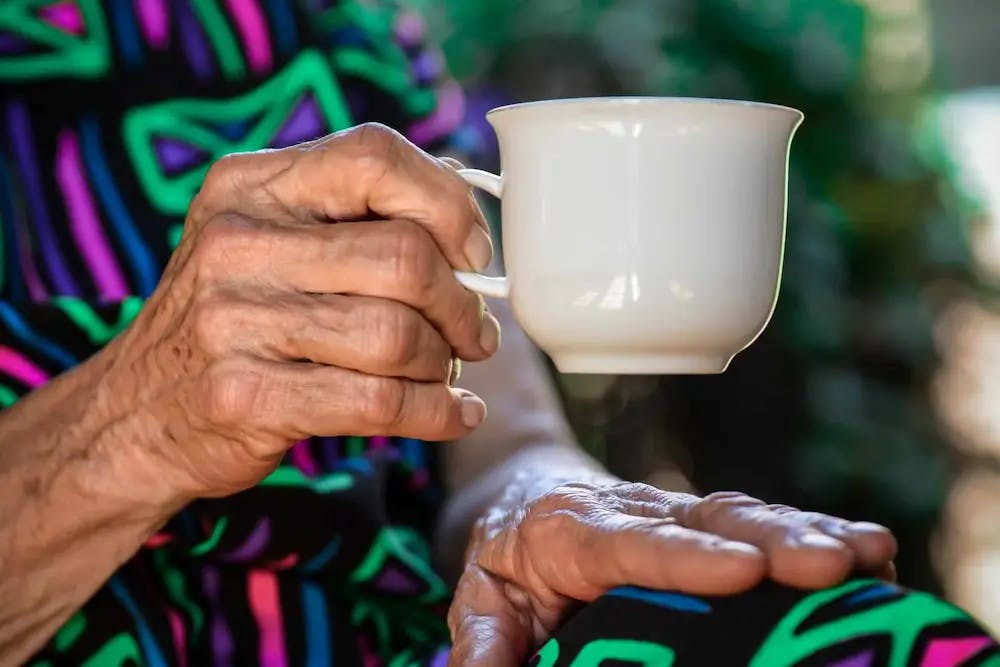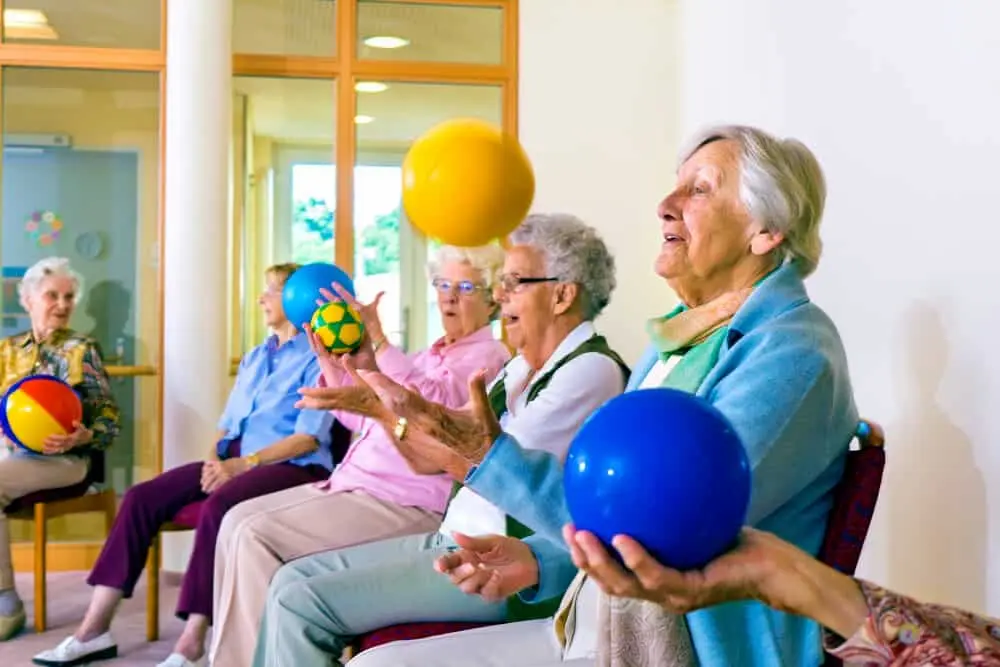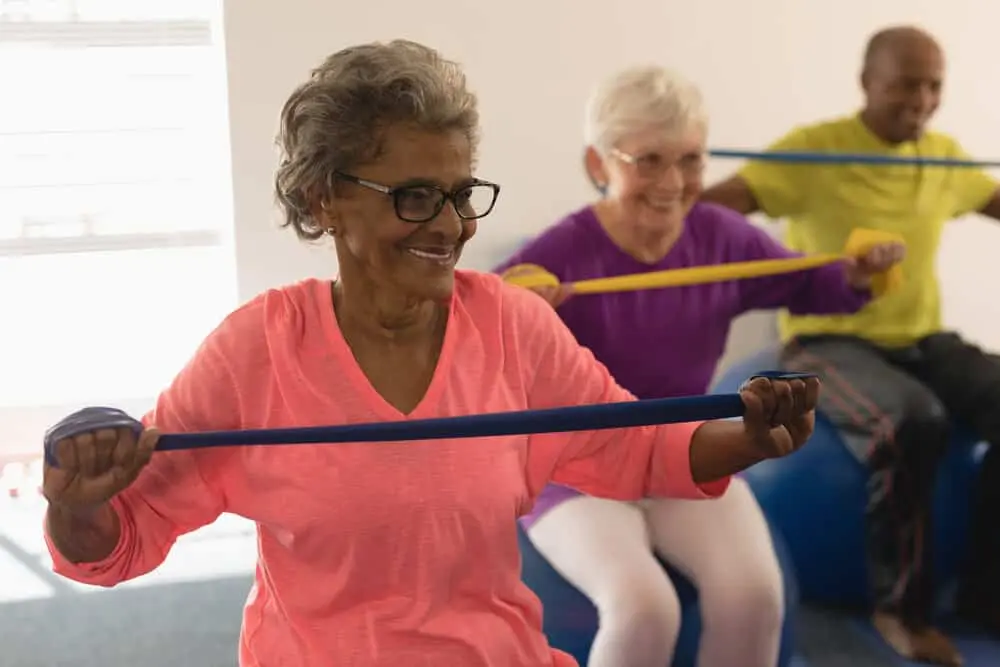What is it Like Living in a Care Home?

Estimated Reading Time: 8 minutes
Although care homes of the past may have had a reputation for being boring, grey buildings with one lonely TV room to serve as the home’s social hub, the care homes of today are far from this old stereotype.
If you’re leaving your own home and starting your care home journey, or you have a loved one or friend who will need care services soon, read on for a true account of what it’s like living in a care home.
Life in a care home can vary from one day to the next, but your needs and preferences should always be catered to above all else.
No two people are the same and so their care home experience should be different, too. What one person might love, another might hate, so it’s up to the staff to get to know each individual resident and find out their likes, dislikes, meal preferences and hobbies to create a bespoke and tailored care package.
Kickstart your care search
Find the best care homes in your area through Lottie.
What Does an Average Day Living in a Care Home Involve
Every day in a care home is different, but a typical daily routine might include the following:
- Wake up between 7-8 AM. If you need assistance with washing and dressing, a staff member will come to help you
- Have your breakfast in the home’s communal dining area. You will usually be given your medication with meals
- Morning activity, such as singing or music
- Lunch time in the communal dining area, or outside in good weather
- Afternoon activity, such as painting, gardening or gentle exercise
- Visit from family members
- Enjoy an evening meal in the dining room, or privately in your own room
- Watching a film or some TV in the home’s cinema or TV room
- Bedtime. Staff will check on each resident to ensure they are comfy and content
Residents enjoy the freedom to choose what they do each day, although if you prefer to have a set daily routine, this is also an option.
You should not be forced to join in activities you don’t wish to do, although lots of elderly people enjoy the social element that activities offer, along with the chance to make new friends in later life.
Types of Care Home
Your life will also depend on the type of care home you live in.
Residential care home
Residential care homes are fairly standard and you may have a more independent style of living here, with occasional assistance with tasks like washing and dressing. There will be some personal care available.
Nursing home
If you live in a nursing home and have a deteriorating health condition, it’s unlikely you’ll be as active as someone in residential care.
However, nursing home care staff still do their utmost to ensure that residents feel cared for and comfortable 24 7 – and if they feel like joining in activities, that they are supported to do so.
Assessment
In the UK, care homes are assessed and rated by care regulators. For England, this is the Care Quality Commission (CQC). For Wales, it's the Care Inspectorate Wales. For Scotland, it’s the Care Inspectorate, and in Northern Ireland, the Regulation and Quality Improvement Authority (RQIA).
A care home’s rating can give you a pretty good idea of what it’s like to live there; from the cleanliness of the facilities and the range of meal options to the staff and the activities available.
Environment and Facilities
Different care homes have different environments and facilities, so it’s really a question of where you think you’ll fit in best.
You need to find a suitable environment for your needs. For example, do you want a busy and bustling place decorated in bright colours, with plenty of social activities, or would you prefer a quieter, more tranquil setting with a peaceful private space and the option to spend your personal time reading or listening to the radio?
Whatever your preference, a good care home should have a pleasant, clean environment, with appropriate adaptations for residents with a disability, or a condition like dementia.
When UK Care Seekers were asked which facilities they would rather have in a care home, 37% said a hair and beauty salon, 24% requested a cinema and 23% wanted a bar.
Some care homes have a huge range of facilities available, from reading rooms, IT rooms and libraries to on-site gyms, cafés, shops and spas.
Some nursing homes also offer specialist facilities for those living with dementia, including sensory gardens and special dementia equipment to aid memory.
Activities
Life in a care home doesn’t have to be dull – and most have an events and activities calendar to keep residents entertained, with these activities being organised by a dedicated activities coordinator.
Given that 68% of UK Care Seekers want their care homes to organise days out to local cafés or pubs and 65% want visits to the beach or the coast, days out are certainly up there when it comes to activities.
Lots of homes have private minibuses to take residents for excursions, with some lucky residents having the opportunity to visit museums, art galleries and National Trust properties.

However, home comforts are also important – a massive 74% of Care Seekers want a Sunday Roast and just over half of Care Seekers requested a bit of pampering with hair and beauty treatments.
If you’re the adventurous type, lots of homes offer the chance to take up new hobbies and for outdoorsy people, most homes have a garden where you can have a go at growing your own veg.
When you’re looking for a care home, consider the hobbies you love and want to keep up, as well as some new activities you might like to try!
Staff
Care home staff are the lifeblood of a care home, going above and beyond to care for each individual resident’s needs and wants. The staff will be with you from the moment you wake up, helping you to get dressed, taking you to mealtimes, giving you your medication, all through the day, until it’s time to go to bed.
A good care home needs to have sufficient numbers of staff to cover round-the-clock care – and all members of staff should be positive, enthusiastic, professional, compassionate and dedicated to promoting independence in care. Staff should also try to promote dignity in care where possible.
In addition to providing care services, medication and help with day-to-day tasks, the staff are also there to listen to you – to be a sympathetic ear in tough times, help you resolve any problems you might have and listen to your stories about your life.
You’ll also get to know other staff members at the home, including the care home manager, cleaners, laundry staff and kitchen staff, is well as numerous healthcare professionals who are brought into the home to do health check-ups, including physiotherapists, chiropractors, GPs, dentists, and opticians.
Food & Drink
Care home food used to have a bad rep, but these days, nutrition and hydration are one of the top priorities in a care home. Whereas an elderly person living alone may not be able to or no longer want to, cook proper meals, their nutrition might suffer as a result.
In a care home, you can be sure that your loved one will be getting everything they need to fulfil their nutritional needs, healthy and tasty meals three times a day, plus any snacks or beverages they might fancy in between. Lots of homes have an on-site tearoom or café serving up delicious home-baked cakes and hot beverages for residents and their family and friends to enjoy. Most also have dining rooms where residents can enjoy meals together.
The exact food and menu available will depend on the care home, but when you are on your care home journey, you can request example menus or even take your relative for a trial meal at the home.

Staying Active
When we get old, keeping fit isn’t as easy as it used to be. However, even in old age, it’s important to exercise regularly to keep the heart healthy and the joints mobile. Regular exercise can also be a real mental health and mood booster, as well as improving sleep quality.
If you already keep fit by walking, dancing or playing sports – great! You’ll likely be able to find an exercise class you enjoy at the home – some even have Zumba, yoga and pilates classes!
If you aren’t as mobile due to a health condition or a disability, don’t worry – there will still be exercise options for you at your care home. Seated dance classes, gentle strolls around the garden, or individual physio sessions, either seated or in bed, will all help you to stay active.

Keeping Connected
Daily life in a care home doesn’t have to be lonely and there are lots of ways to stay connected. In addition to your regular visits from family members and friends, you can join social activities with the other residents at the home to socialise and make friends with fellow residents. You can also sit with groups of people at meal times and in communal areas.
Many care homes boast links with the local community and organise events and visits with local schools and churches. Some even have nursery groups or PAT (Pets as Therapy) animals in for a morning, which residents enjoy.



